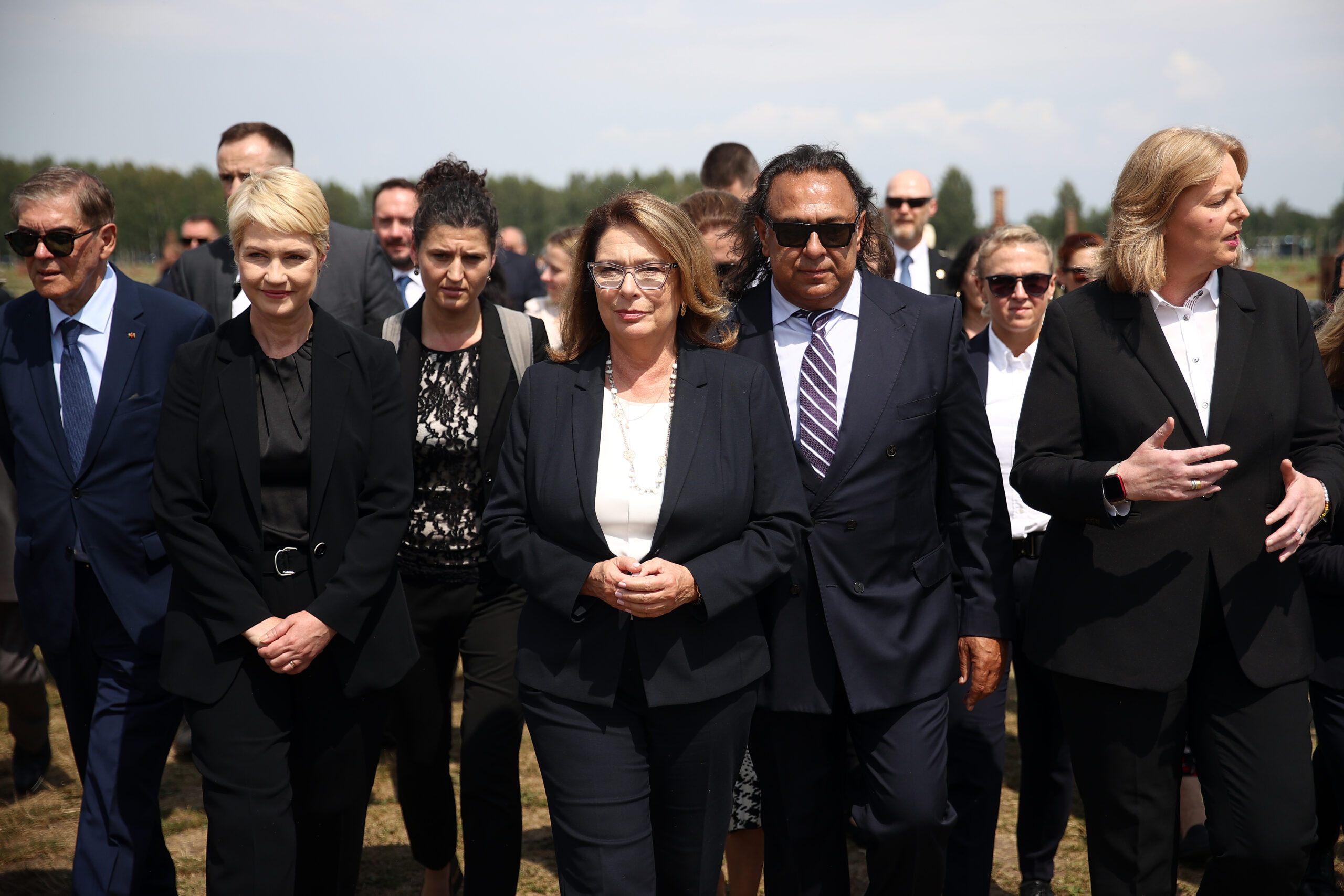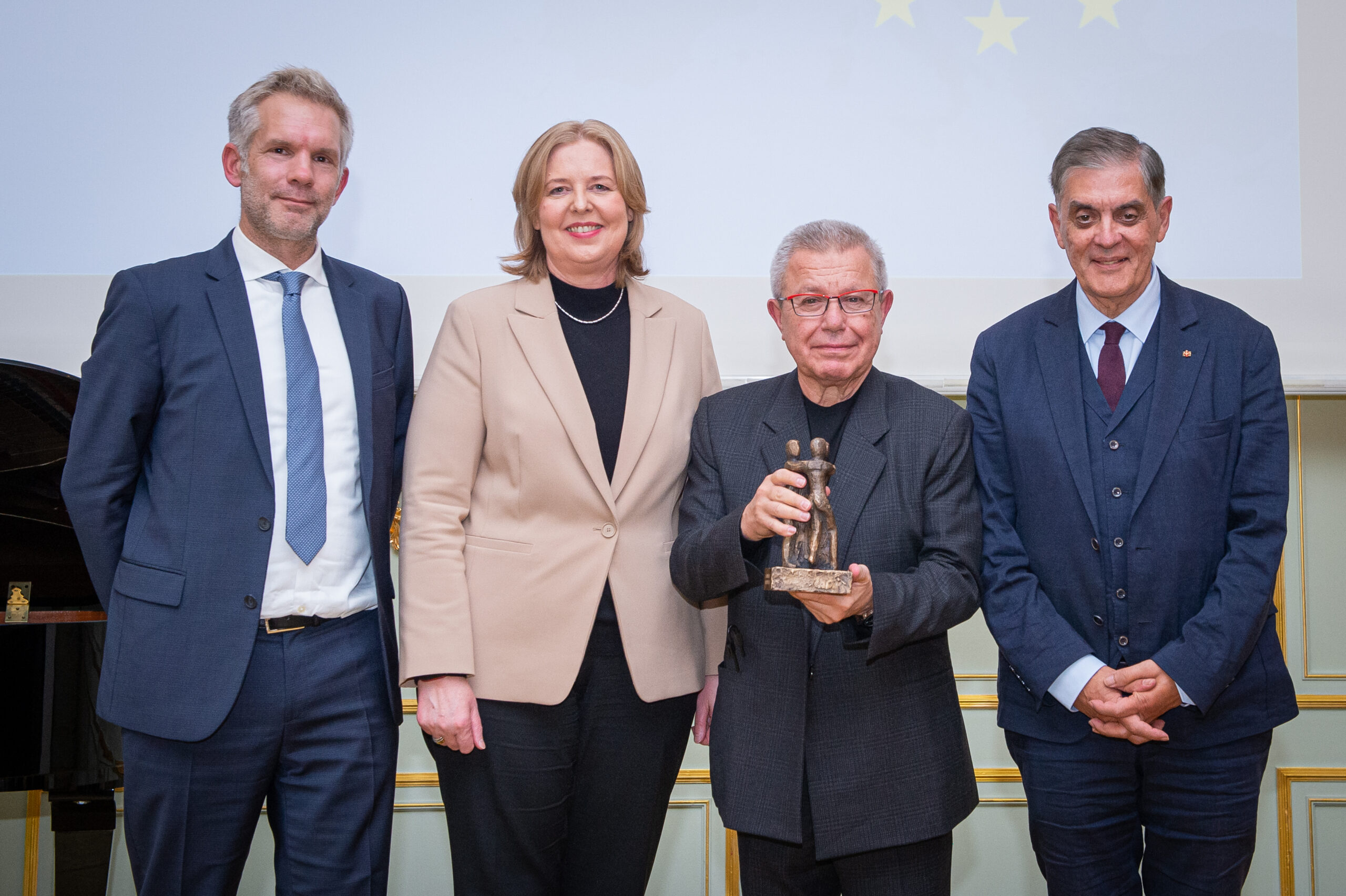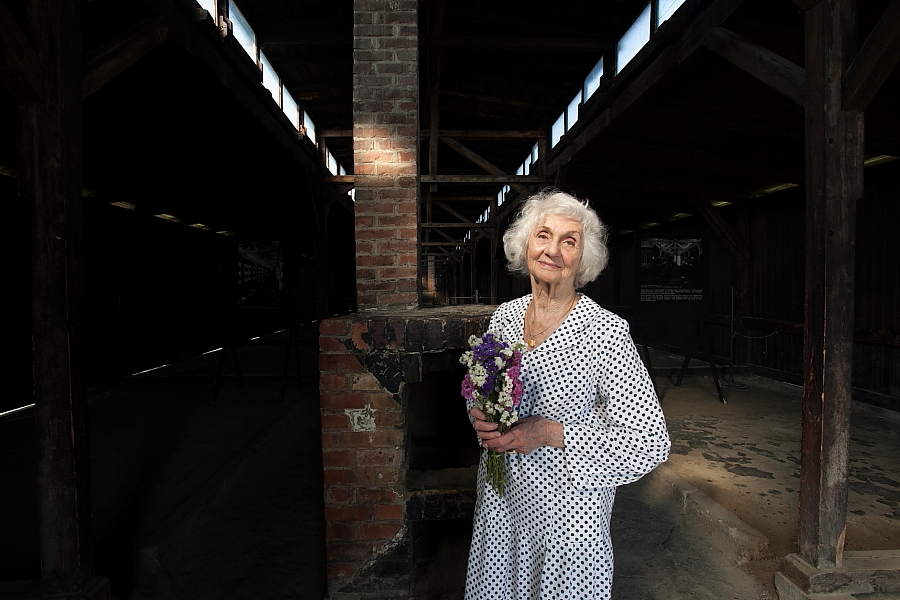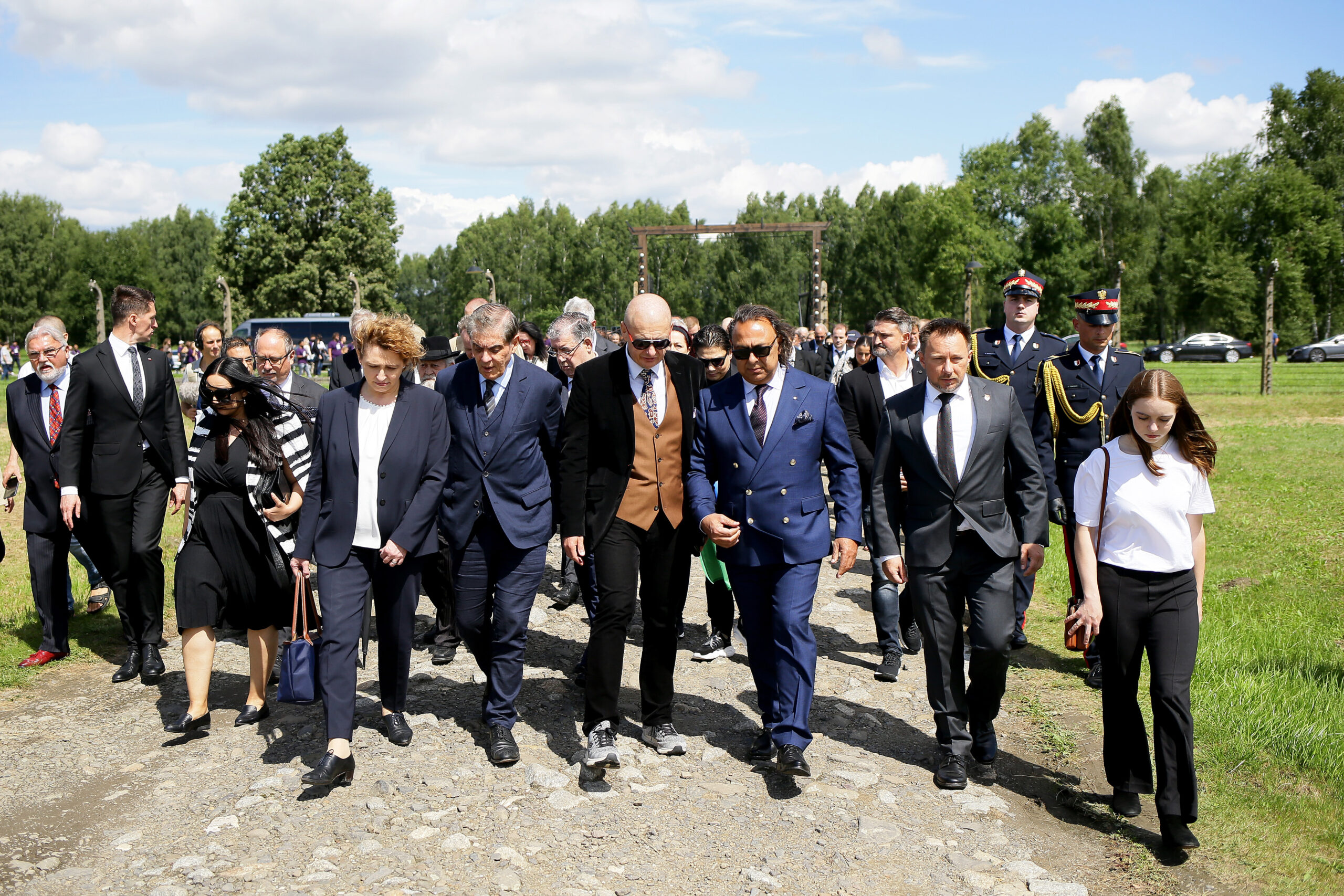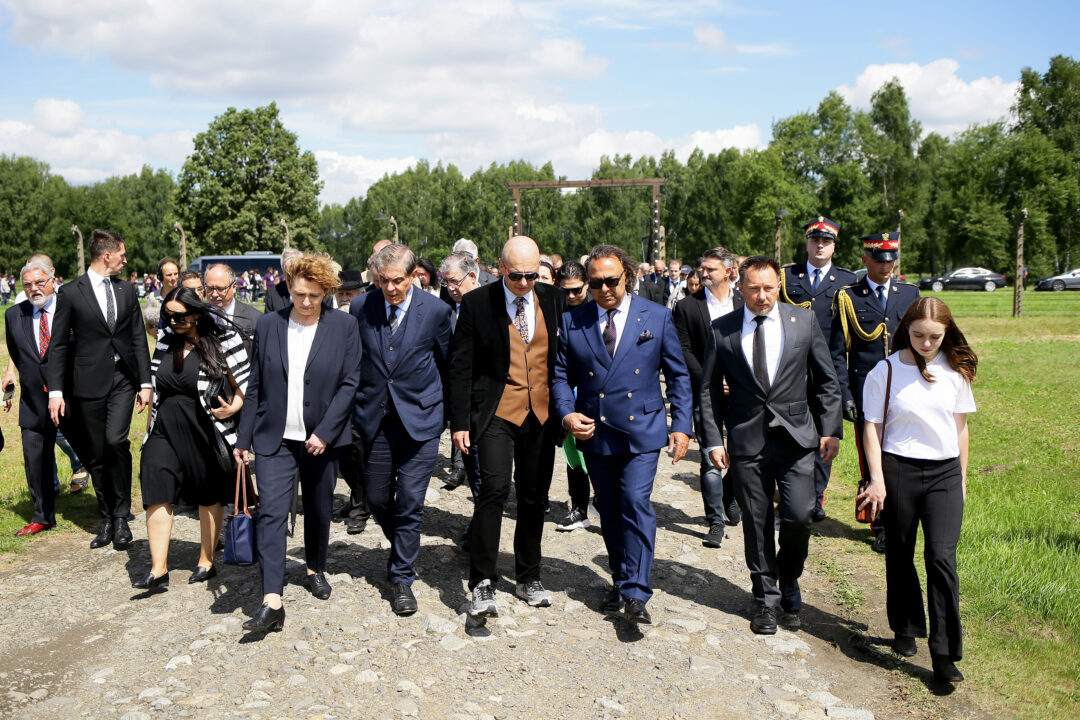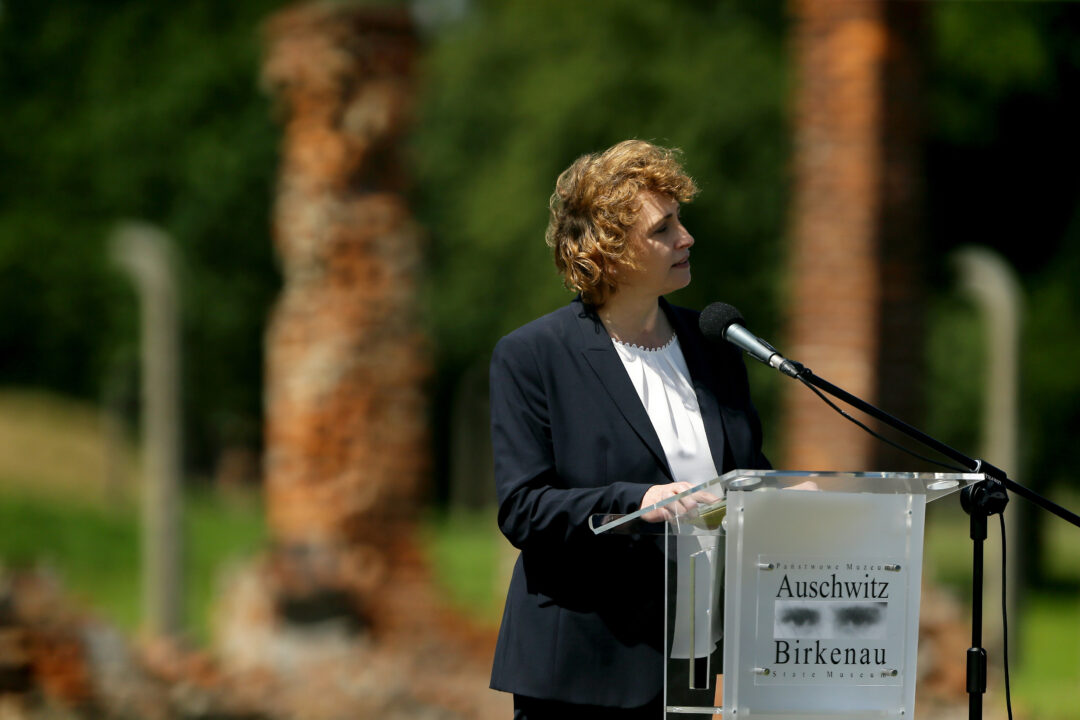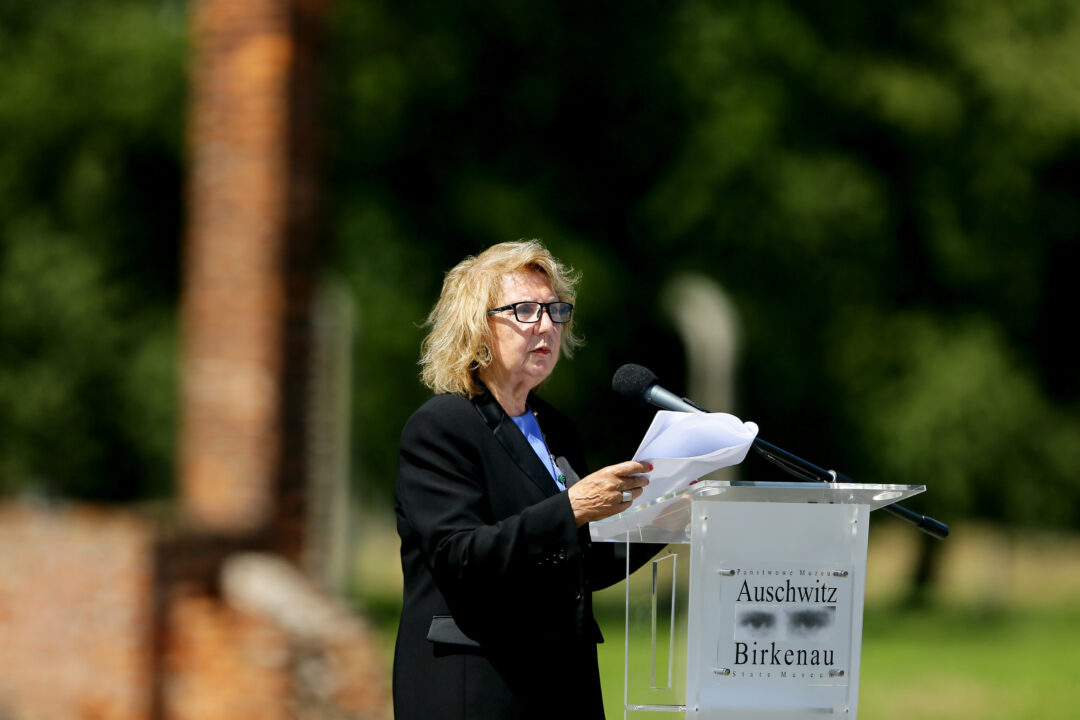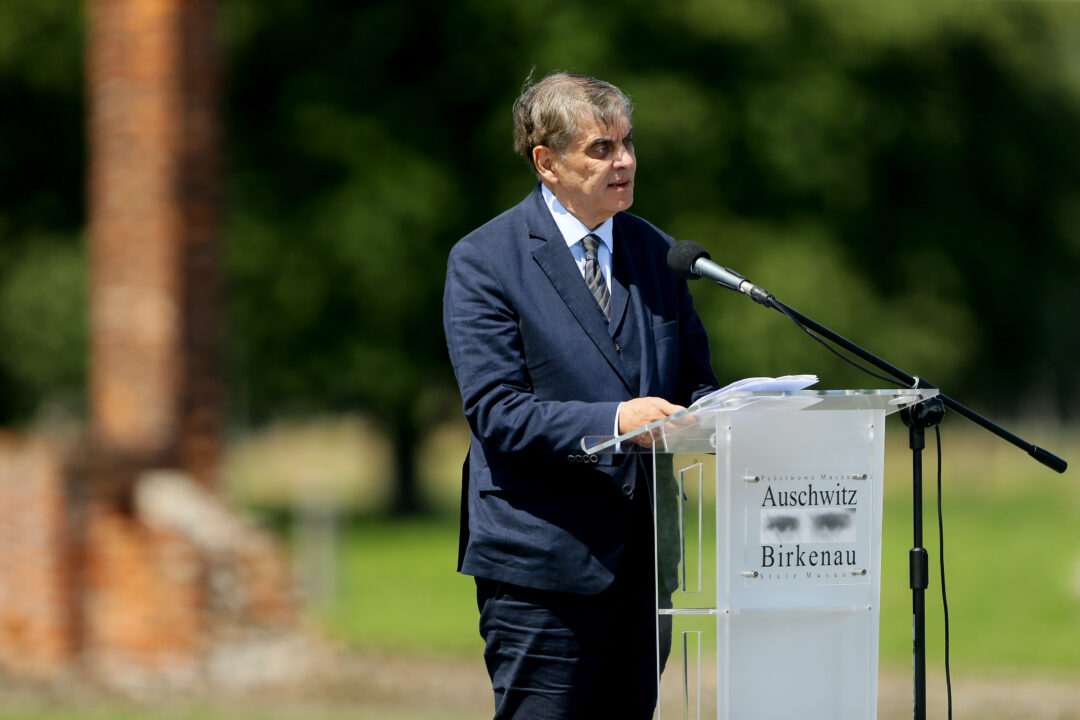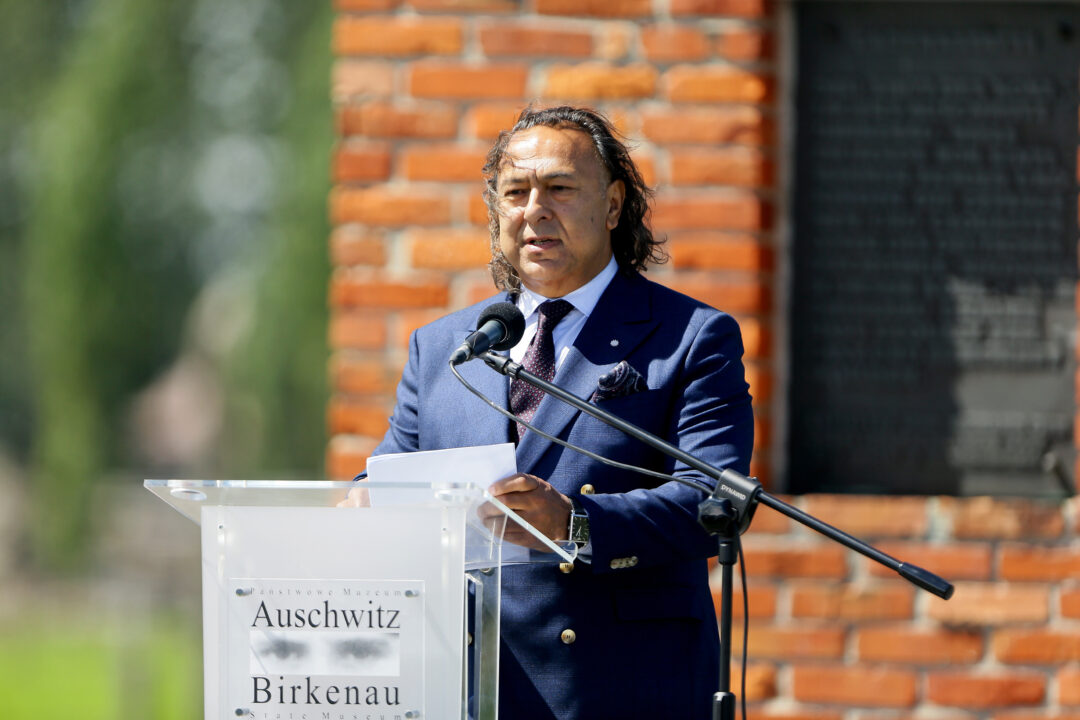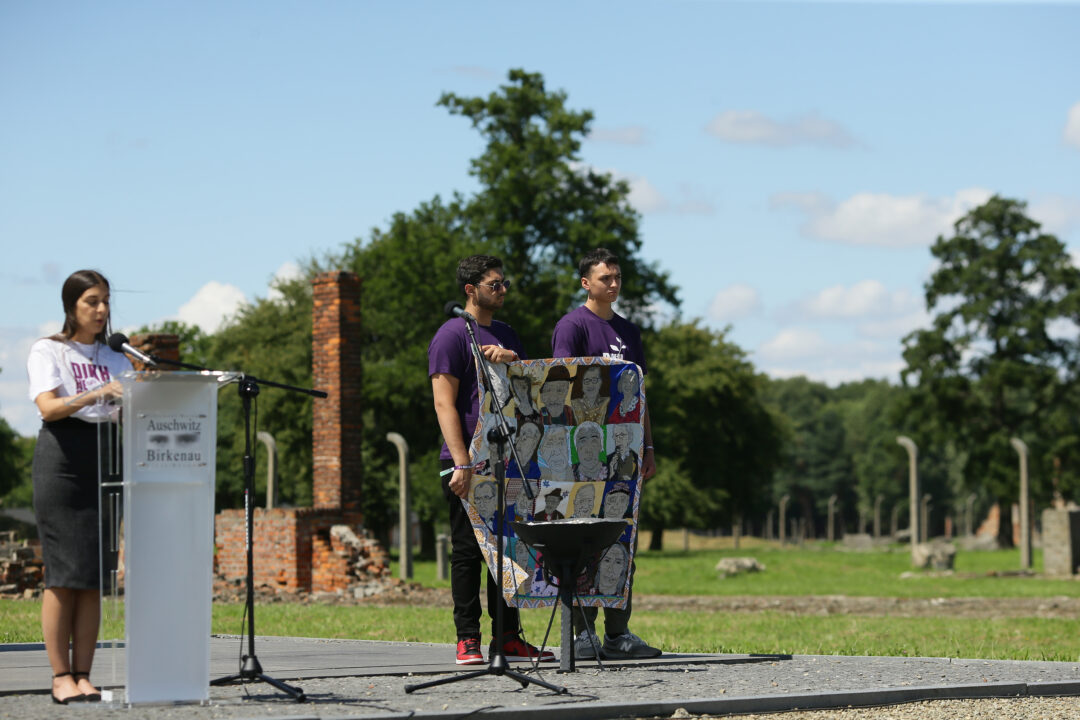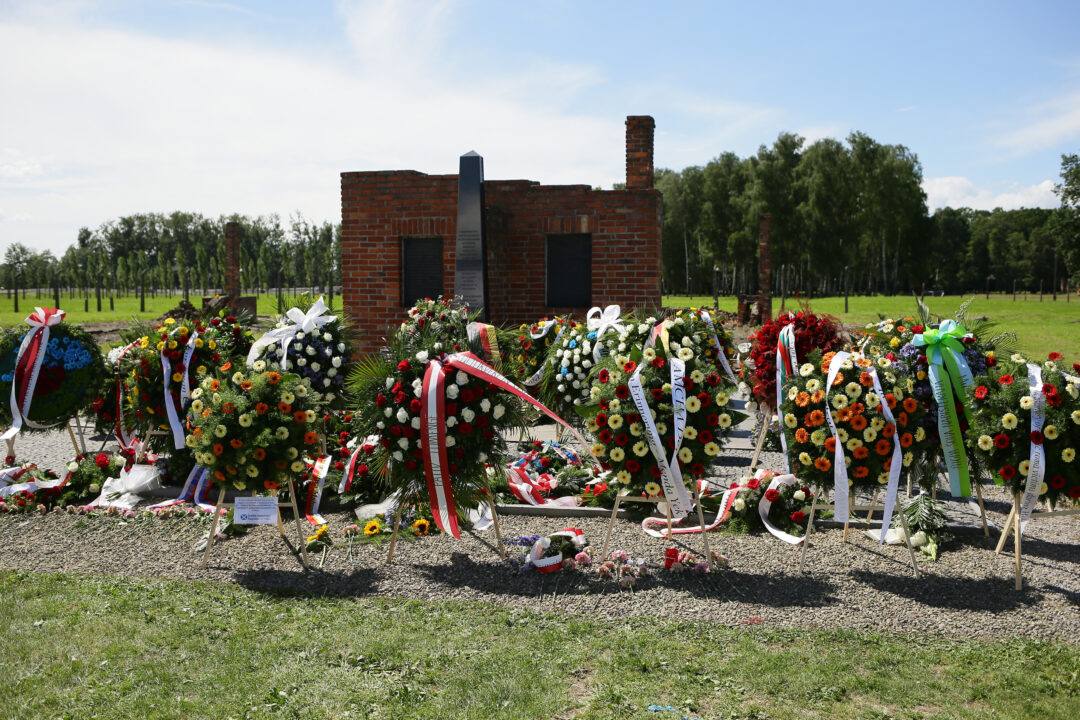Vice-President Nicola Beer will be the first high-rank representative of the European Parliament in giving a speech on the Holocaust Memorial Day for Sinti and Roma.
Children, sick and elderly people had no chance to survive: In the night of 2 August 1944 the last 4,300 Sinti and Roma were forced into the gas chambers and murdered by the SS – despite their fierce resistance – at the concentration and extermination camp of Auschwitz-Birkenau. On the 79th anniversary of the dissolution of camp section B II e, Vice-President Nicola Beer spoke as the first high-rank representative on behalf of the European Parliament at the Holocaust-Memorial Day for Sinti and Roma on the site of crimes against humanity. The Central Council and the Documentation and Cultural Centre of German Sinti and Roma, together with the Association of Roma in Poland and in cooperation with the Auschwitz-Birkenau State Museum, had invited to the central international commemoration event to remember the 500,000 murdered members of our minority in Nazi occupied Europe.
“It is our duty and responsibility to remember. It must be our collective accountability to educate the next generations about the Holocaust of Sinti and Roma”, stated Nicola Beer at the memorial to the murdered Sinti and Roma on the site of the former extermination camp of Auschwitz-Birkenau. The Vice-President of the European Parliament added: “Remembrance must also include to fight as a society against any form of discrimination and racism at its core. Despite years of work, we have not put a halt to discrimination in today’s Europe: Antigypsyism remains a widespread form of racism in our societies.” The Vice-President called upon the European Parliament and its member states to enforce their efforts against antigypsyism and all other forms of racism.
Gerda Pohl from Bremerhaven spoke on behalf of the Sinti and Roma Holocaust-survivors. She was born in 1939 and was lucky to hide with her family from their deportation in a forest. The Sintezza also recalled the fate of her late husband Horst Pohl, who was deported with his parents and siblings to Auschwitz and there was abused through pseudo-medical experiments.
“Even after the war we had to suffer many humiliations being Sinti in Germany. And these experiences – just as much as the Nazi regime – have left a lasting mark on my later life”, she described. In her speech, Gerda Pohl also urgently addressed the guests present: “I beg you from the bottom of my heart to fight racism wherever you encounter it. Especially to the young generation I call out: You have in your hands how the future of Germany, Europe and the whole world will look like.”
Romani Rose, the chairman of the Central Council of German Sinti and Roma, warned in his speech against the increasing hostility towards democracy in Europe: “It is with great concern that we witness all over Europe anti-democratic tendencies and right-wing extremism, that yet again comes to light in violent outbursts towards Sinti and Roma, Jews and other minorities. Antigypsyism, anti-Semitism and racism are once again part of everyday life in many European countries.” But it must be the claim of the European Union and its member states to outlaw antigypsyism, just as much as anti-Semitism. The Central Council therefore sees it as a positive change and an important signal of the state of law towards the German Sinti and Roma, that the Federal Criminal Police Office, represented by its President Holger Munch, signed the working definition of antigypsyism/anti-Roma discrimination of the International Holocaust Remembrance Alliance IHRA on 27 January 2023. On this basis the Federal Criminal Police Office outlaws any form of antigypsyism and resolutely counteracts it within its agency. “Today, here from Auschwitz, I call upon all Ministers for inner affairs of the German states to follow in those steps to academically review the history of injustice of the police forces during the Nazi-regime and after 1945 – and therefore to finally put an end to the racist and antigypsyist registration and discrimination of Sinti and Roma by the police on the basis of ancestry”, demanded the Chairman of the Central Council.
Roman Kwiatkowski, the President of the Association of Roma in Poland, referred in his speech to the Russian offensive war on Ukraine. “For the second time, and may it be the last time, we meet at Auschwitz-Birkenau Memorial in the shadow of a raging war, not far away. The determination of the defenders of Ukraine, including the Roma citizens, would not have been enough to resist the armed forces of the Russian invaders, if it had not been for the solidarity of the peoples and governments of the free world”, Roman Kwiatkowski stressed. “The current situation has shown with great urgency the necessity of cooperation, the rejection of national egoism and abandonment of individual interests, if we want to prevent Europe from repeating the tragic experiences from 80 years ago”, Roman Kwiatkowski added.
On behalf of the international youth memorial event “Dikh He Na Bister” (which means in Romanes, “Look and do not forget”), Georgina Laboda personally addressed the Holocaust survivors: “We are deeply thankful for your courage to share your stories with us. You opened our eyes for what happened in the past. Your call for resistance, mutual respect and love will always be an essential part of our movement. You strengthened our courage to stand up against antigypsyism, antisemitism and all forms of racism that we, as young Roma and Sinti, still face today.”
For the very first time, several members of the German Bundestag responsible on the topic of antigypsyism, as well as representatives from the federal states participated in the commemorative events at Auschwitz-Birkenau Memorial. They had thus accepted the invitation of Dr. Mehmet Daimagüler, the Federal Government Commissioner against antigypsyism and for the life of Sinti and Roma – as well as Doreen Denstädt, the Minister of Justice and State Commissioner against antigypsyism of the State of Thuringia.
“If we want to sincerely commemorate the 500,000 European Sinti and Roma, who were murdered, we must resolutely fight antigypsyism from which the descendants are still suffering today. This requires determination by our society and governments, on federal and state level”, Dr. Mehmet Daimagüler made clear.
Background
2 August was recognised by the European Parliament in 2015 as the European Holocaust Memorial Day for Sinti and Roma. The annual international commemoration event at the Auschwitz-Birkenau Memorial on 2 August is held by the Central Council and the Documentation and Cultural Centre of German Sinti and Roma and the Association of Roma in Poland in cooperation with the Auschwitz-Birkenau State Museum.
Members of our Sinti and Roma community from many countries, representatives of the Polish State and other international institutions and organisations were present as well as the ambassadors of various countries and other diplomatic representatives. Together with the International Roma Network TERNYPE, the Heidelberg Documentation and Cultural Centre also organised under the title “Dikh He Na Bister” (“Look and do not forget”) a multi-day educational event in Krakow with over 200 young Sinti and Roma, as well as members of the majority society from all over Europe, who also participated in the commemoration.
The commemoration was streamed live via https://www.roma-sinti-holocaust-memorial-day.eu/. The video is permanently available there with a wide range of information on the Holocaust of our minority. The information is available in German, English, Polish and Romanes.
